What is “Fibre” Broadband? UK ISPs Respond to Ofcom’s Call for Clarity

A few months ago Ofcom launched a new consultation that proposed to only allow broadband ISPs to use the terms “fibre” and “full-fibre” on their sites and in contracts “if their network uses fibre-optic cables all the way from the exchange to the home” (FTTP). But feedback suggests that the biggest providers are not supportive.
The debate over what should and should not be considered a “fibre” service has been going on for well over a decade. Hopefully by now most people should already know that fibre optic cables are made of glass (silica) or plastic, which allow information to be transmitted in the form of laser light. This makes them significantly more capable (speed, reliability etc.) than traditional metal (copper, aluminium etc.) based cables, which transmit data using electrical signs and are more prone to significant signal degradation over distance.
Despite this unavoidable fact, numerous ISPs have spent over a decade selling slower “part-fibre” or “hybrid-fibre” (e.g. FTTC / VDSL2, G.fast, Hybrid Fibre Coax) solutions as “fibre broadband” products, which is one of the reasons why so many people continue to be confused about the terminology today (i.e. if you think you’ve got a “fibre” service already, then you may be less likely to contemplate an upgrade to true FTTP).
Over the years’ there have been various attempts to correct this, such as a review conducted by the ASA / Advertising Standards Authority (here) and a failed court challenge by CityFibre (here). Back in 2021 the Gigabit Take-Up Advisory Group (GigaTAG) also proposed several changes (here), including clearer labelling of broadband packages, but so far nothing has really succeeded.
The Regulator Takes a Stand
Back in May 2023 (here) the regulator, Ofcom, pointed out that pure Fibre-to-the-Premises (FTTP) lines were due to become the dominant broadband delivery technology in the UK, and thus they felt it was finally time to address how the term “fibre” was still being “used inconsistently” by internet providers. The biggest ISPs, with a legacy of FTTC/HFC style solutions, have historically been the worst offenders on this front.
The regulator isn’t due to publish the outcome of this consultation until sometime in the coming Autumn, but they have recently published a summary of the responses they’ve had from various ISPs (credits to GreenLantern22 on our forum for spotting), which makes for interestingly reading.
Overall, the alternative networks (e.g. CityFibre, CommunityFibre, Gigaclear, Fern Group, Ogi and toob), most of which are building FTTP, were almost universally in favour of Ofcom’s proposals. The exception was Hyperoptic, which agreed with Ofcom’s push, but they also wanted it extended to include Fibre-to-the-Basement (FTTB) connections (they’ve built a lot of those) because, they said, such connections deliver “comparable services” (there’s usually only a little bit of Ethernet/LAN style cable involved); it will be interesting to see which way Ofcom goes on that one.
Elsewhere, Openreach, which has less of a stake in this one (i.e. they use technical definitions and don’t advertise their products directly to consumers), said they fully support Ofcom’s proposals and believe that this is an important first step in “helping end customers understand the difference in speed, reliability and service levels that different broadband technologies can provide.”
However, the most interesting feedback came from the biggest ISPs and the ASA, which in the past have generally opted to retain the status quo. We’ve summarised some of those responses below, as these are the ones that may have the biggest impact on Ofcom’s position.
Summary of Key Responses to the Consultation
NOTE: BT says they understand Ofcom’s view but will need 12-months, rather than the proposed 12-weeks, for implementation. The provider also highlights that Ofcom’s position conflicts with that of the ASA’s.
“We understand why Ofcom has reached the view that providers should no longer use the term ‘fibre’ to describe anything other than FTTP. However, as we currently call our FTTC packages ‘fibre’ this will require us to make significant changes to multiple touchpoints and systems across our three consumer brands and also in our business customer facing unit.
We want to do this properly and ensure there is consistency across all channels and customer touchpoints in the order journey and in-life. For reasons explained further below, this means we will need 12 months to complete all the changes required, far longer than Ofcom’s current proposed 12-week implementation period.
We are still in the process of carrying out a full impact assessment, but it is likely that we can implement some aspects of Ofcom’s proposals, once confirmed – such as more overt links on our websites to existing explanations of the difference between FTTC and FTTP – sooner than the more complex changes including the renaming of all our FTTC-based portfolio.
Whilst we understand that Ofcom’s assessment is based on how to give customers more information to ensure they are making the right purchase decision, there is an inconsistency with the ASA’s approach to the term ‘fibre’. We would like Ofcom to make it clear that their position has no reflection on the ASA’s established position that using the term ‘fibre’ to describe FTTC in advertising is not misleading.”
NOTE: The ASA broadly sticks to their guns, although they admit that Ofcom’s change is likely to prompt a review of their current policy, although they avoid making any predictions about the outcome. Just to be clear. Ofcom’s proposals cover residential and small business services, but they “do not cover advertising“, although they do cover point-of-sale information and contractual information. Advertising, including online advertising on companies’ own websites, falls within the remit of the ASA.
“At the conclusion of Ofcom’s work we will, as an evidence-led regulator, consider any evidence provided by contributors if it has a bearing on our position. Assessing what impact any new standards have on wider advertising practices around fibre, we will evaluate whether the time is right to review our 2017 decision again in the light of more recent developments and any related new compelling evidence.”
NOTE: KCOM said customers who live in areas where FTTP is available usually have a choice of different technologies to deliver their broadband and often confuse FTTC with FTTP, making it more difficult to engage with them regarding the benefits of FTTP. So, they support Ofcom’s proposal, but they’d prefer a 6-month implementation period and want Ofcom to encourage the ASA to adopt a consistent approach.
“While KCOM does support the inclusion of a customer specific description of the underlying technology in Contract Summaries and Contract Information, if required to do so then an implementation period of 6 months would be more realistic.
We would urge Ofcom to engage further with the ASA to ensure consistency in terms of the approach to describing broadband technology. “
NOTE: Sky rejected Ofcom’s proposal and said that the 12-week implementation period was unrealistic (they want at least 9-months).
“While Sky agrees that there is value in consistent use of terminology across industry, we should not be forced into describing our services based on the underlying technology when Ofcom’s own research shows this information is not material to the decision being taken by most customers. In any event, 12 weeks is an unrealistic timeframe to implement the proposals put forward in Ofcom’s Consultation as the changes would require significant development work.
Ofcom has not fully considered the impact of providing additional mandatory information on customers who are already overloaded with information. Ofcom wrongly concludes that information about the underlying technology will clarify rather than confuse. Sky believes that increasing the volume of mandatory information with descriptions of underlying technology is more likely to confuse customers or result in disengagement with the information provided to them.”
NOTE: TalkTalk initially seemed to welcome Ofcom’s “wish” to address the issue, but they pointed out that the regulator was acting “rather late” and questioned whether banning its use to describe any products except FTTP will be beneficial. The ISP also said it would be expensive to implement and requires 9-12 months.
“Earlier intervention before ‘fibre’ became a ubiquitous term used for FTTC products may have had an impact, but action at this late stage may increase rather than lessen customer confusion. As Ofcom notes, its research indicates that only 46% of respondents who claimed they had FTTP actually lived in an FTTP area (§A3.10). As discussed further … below, we do not think that re-visiting the use of the term ‘fibre’ is the best remedy. We favour an approach that focuses on establishing FTTP as the superior, future-proof technology through further using ‘full fibre’ terminology, which is already gaining traction in the market.“
➤ Virgin Media’s (VMO2) Response
NOTE: Virgin Media gave the strongest opposition of any provider to Ofcom’s proposal. The ISP criticised the regulator’s lack of an proper impact assessment and warned that the regulator was departing from its past position of technology neutrality. Instead, they want Ofcom to allow the natural competitive market to work itself out. None of this is surprising given that most of VM’s network is Hybrid Fibre Coax and won’t be fully FTTP until 2028.
“We refute Ofcom’s position that the Consultation document functions as an Impact Assessment. It is woefully lacking in sufficient detail and fails to take into account the wide-ranging effects of the proposals to the extent that we do not believe that it has sufficiently satisfied its requirement under the Communications Act to undertake an impact assessment. This is of particular concern, given that Ofcom’s proposals afford one type of technology a competitive advantage over others through a regulatory intervention. Ofcom has also failed to provide sufficient evidence of consumer harm to justify its proposals.
Moreover, Ofcom’s departure from technology neutrality is inconsistent with both its own regulatory principles and, critically, Government policy. Again, such a divergence necessitates a full and separate impact assessment to ensure it is warranted.
Rather than intervene – unjustifiably – in a competitive market, we believe that Ofcom should permit the competitive dynamics of the market to prevail and allow providers to continue to compete on the merits of their products, services and technologies. Ofcom should maintain a monitoring role, intervening only if there is clear evidence of harm, for example consumers being explicitly misled about the products that they are purchasing.”
NOTE: Despite their current focus on FTTP plans, Vodafone generally does not support Ofcom’s proposal and says they have not demonstrated that the proposed intervention is needed. The ISP also states that “the market has now largely adopted the use of the term “fibre” to mean FTTC services“, although this is wrong as that term has been used for lots of different technologies, even some wireless services, which is part of the problem that Ofcom wants to fix.
“We do not believe that the proposals set out in the Guidance and consultation (the ‘Consultation’) will materially support full fibre growth. We are also of a view that Ofcom has failed to provide sufficiently strong evidence in support of the introduce this guidance.
We consider that Ofcom should not issue the Guidance. Instead, we propose that Ofcom should explore other ways of supporting customers during a time of change in the broadband market. To the extent that Ofcom considers that is should proceed to issue the Guidance, we consider that it should be changed to reflect the scope of the relevant General Conditions of Entitlement (‘General Conditions’) and the actual needs of customers.
There is no legal requirement on Ofcom to issue this guidance, and, as shown above, the case for introducing this guidance is insufficiently strong so as to outweigh a bias against intervention. We are of a view that Ofcom has not properly reflected on the costs and challenges of implementing this guidance as part of a cohesive impact assessment. Implementing these changes will create significant costs and resource demands for all providers, for potentially very limited customer benefit.”
Most of the responses agree that, whatever the outcome, the ASA’s policy will also need to be updated in order to avoid inconsistencies. On top of that, there are clearly some shared concerns about implementation costs and timescale, although no doubt more than a few of our readers will be wondering why it’s so hard for some ISPs to simply change the word “fibre” to something else.
We don’t really have a clear answer to that one because ISPs redacted related details in their responses and Ofcom hasn’t produced its own research (something a few of the providers would like to see). On the other hand, ISPs change the branding and naming conventions of their packages all the time, so we can’t help but wonder if some of them might be artificially inflating their cost concerns around this.
In any case, it will be interesting to see what Ofcom concludes in the coming weeks or months, when they publish their decision.
Mark is a professional technology writer, IT consultant and computer engineer from Dorset (England), he also founded ISPreview in 1999 and enjoys analysing the latest telecoms and broadband developments. Find me on X (Twitter), Mastodon, Facebook and Linkedin.
« Netomnia UK Start Full Fibre Build for 51,000 Musselburgh Premises
Ads Watchdog Bans EE’s Misleading No.1 UK 5G Network Claims »
Latest UK ISP News
- FTTP (5669)
- BT (3552)
- Politics (2585)
- Openreach (2334)
- Business (2311)
- Building Digital UK (2265)
- FTTC (2056)
- Mobile Broadband (2022)
- Statistics (1818)
- 4G (1709)
- Virgin Media (1659)
- Ofcom Regulation (1488)
- Fibre Optic (1419)
- Wireless Internet (1412)
- FTTH (1382)








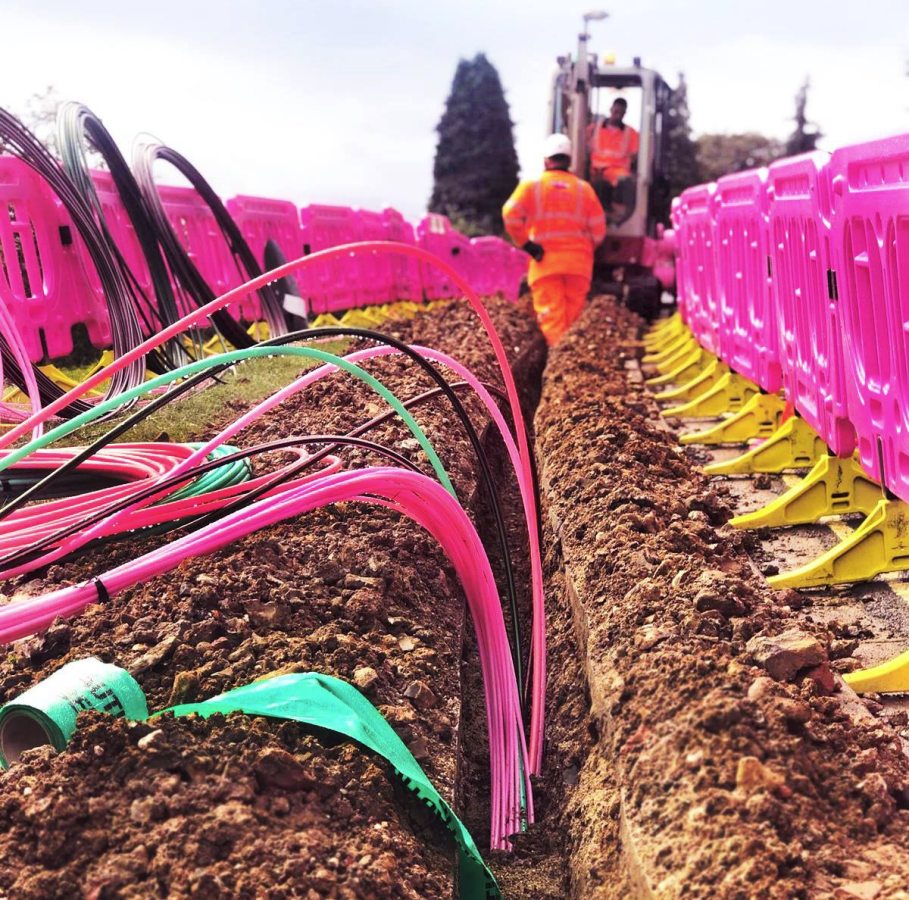




























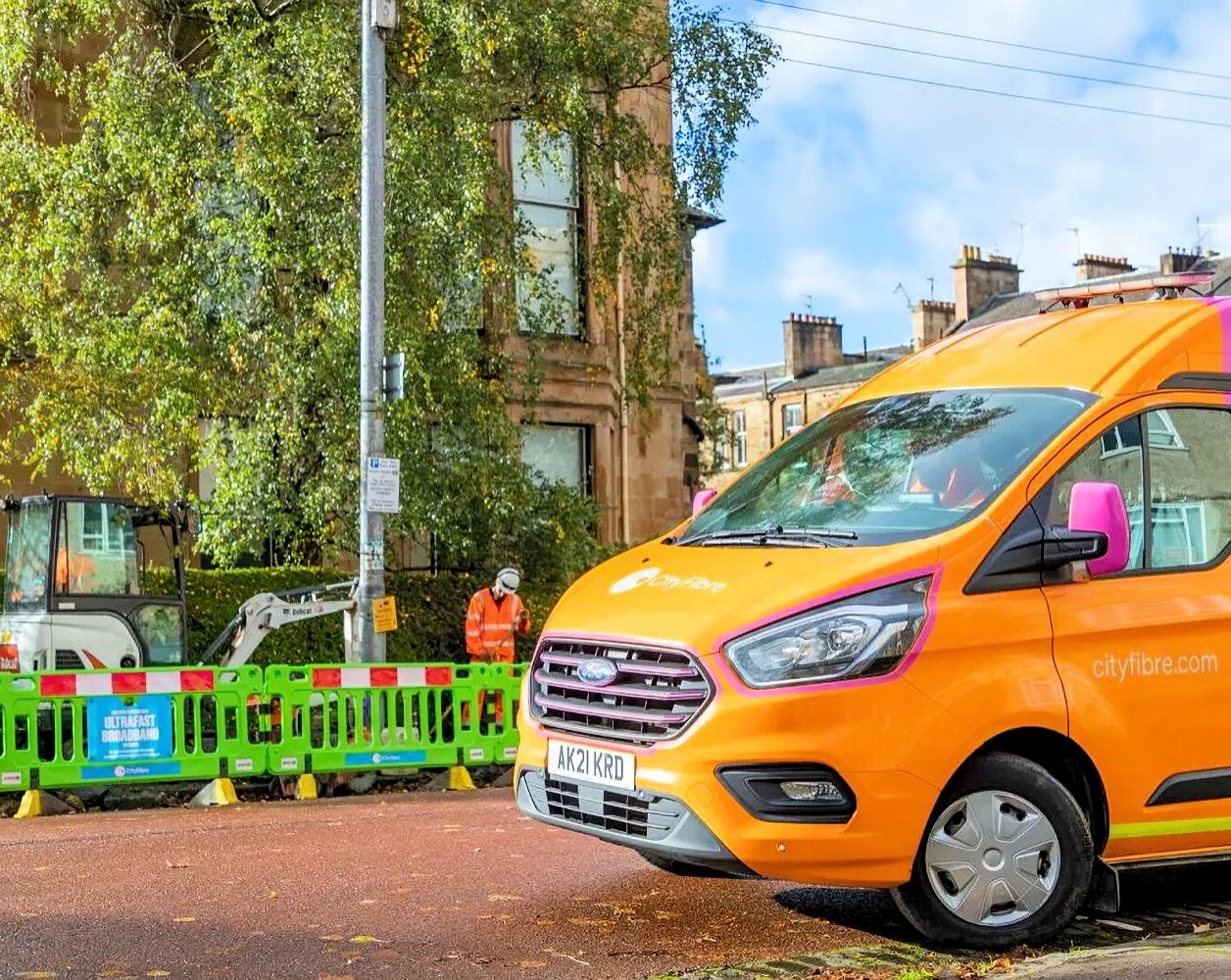





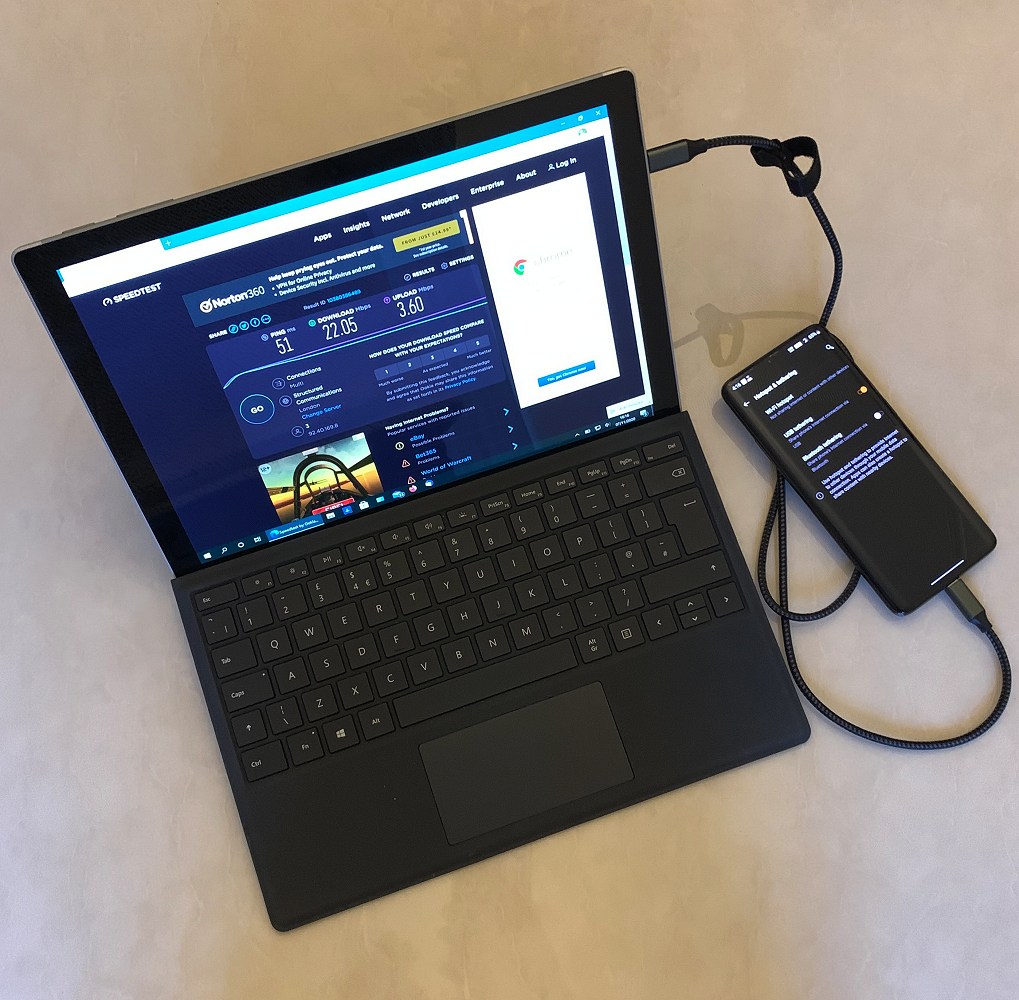


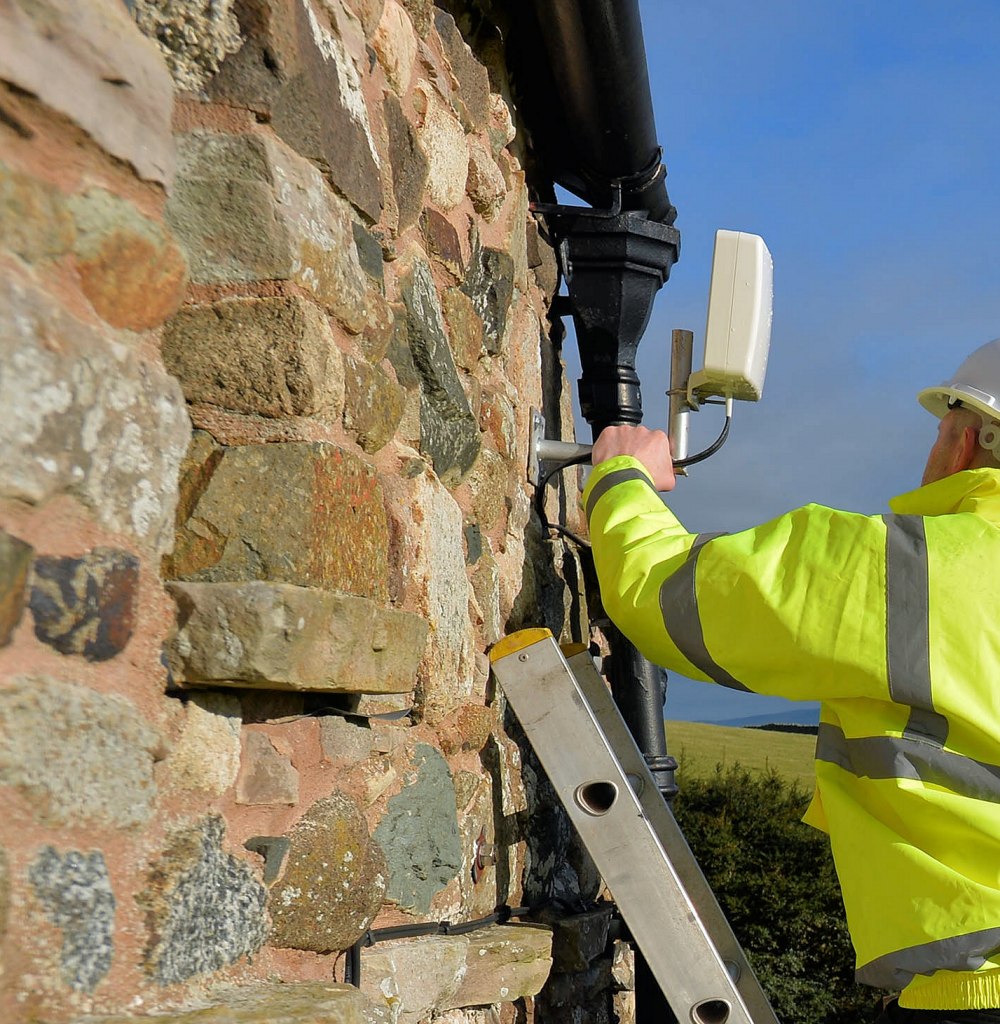






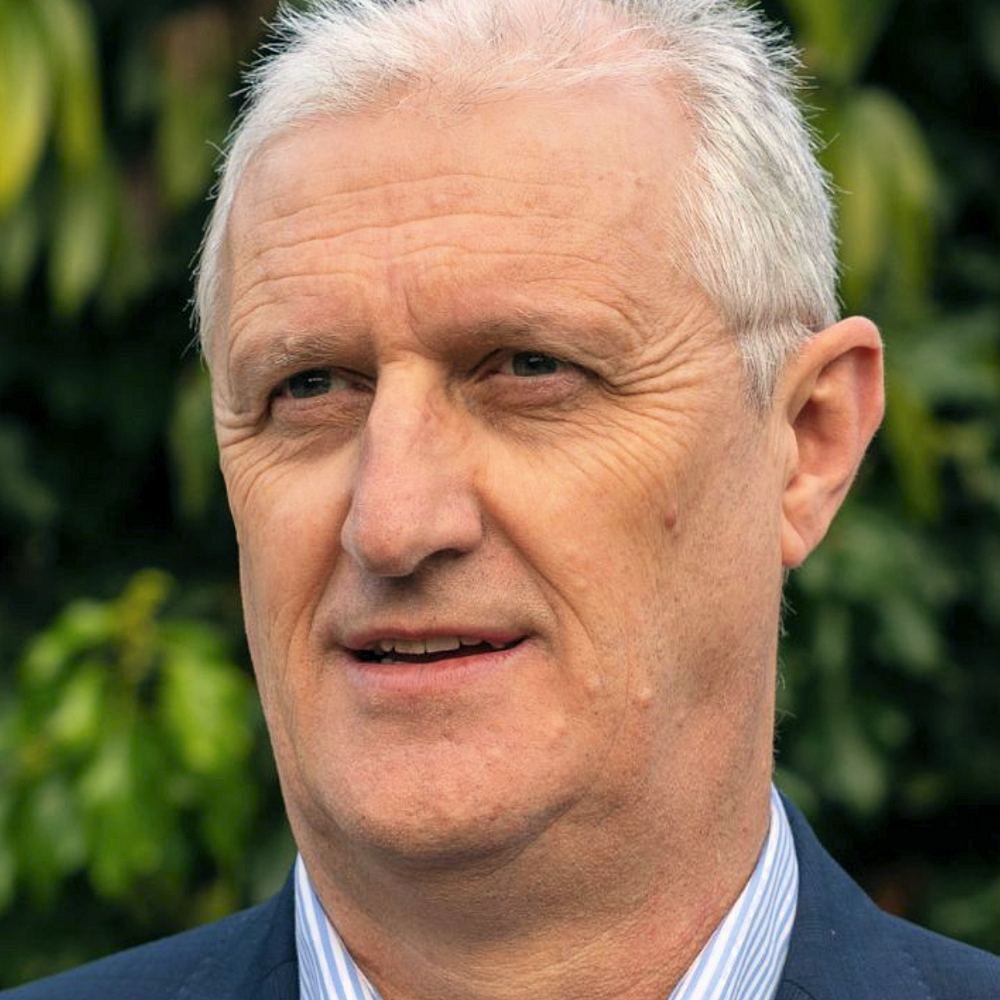

Absolute shameless: an array of ISPs, begging to mislead customers.
Aw, don’t you feel sorry for them?
No.
Openreach did the same thing, with posters on their cabinets saying Fibre is here, you can understand why people are staying as they are because they think they already have fibre
In fairness the posters were saying fibre was at the cabinet, which wasn’t incorrect. If the wider marketing were clear that the fibre stopped at the cabinet then I don’t think consumers would find the posters at all misleading.
@Ben, It was meant to be misleading, that is why they covered the cabinets with Fibre broadband is here, so people will think, yeah we can have fibre.
I knew what it was when I saw the first bit of fibre going in across a bridge over the railway I have to walk over to get to my house. I remember talking to the Openreach engineer about it being Hybrid and I said to him, typical of Openreach to do things on the cheap, that will no doubt cost them more in the long run. He just nodded his head.
People see fibre and they think they have fibre, Openreach/BT knew what they were doing and now it is coming back to bite them as it is now costing them more to put fibre in than it would have done then and now they have more competition.
I can get 2 types of fibre in my area ( hopefully soon 3rd one ) BT fibre – 65Mb/max, VM 1Gb/s max, and hopefully soon one of FTTP company 10Gb/s max. For non technical person they are all the same, but for person with technical knowledge there is drastic difference. Worst I have seen myself is BT fibre broadband in Ongar (Essex) fibre broadband tops out 10Mb/s if there is a good weather.
So, how old do you have to be before you realise “marketing” is merely legalised lying?
It’s not just the ISP’s it’s the entire damn system in this country.
So, how old do you have to be before you realise “marketing” is merely legalised lying?
It’s not just the ISP’s, it’s the entire damn system in this country.
“Customer Touch points” sounds like a whole new management bs phase. Well done BT!
It’s a much shorter way of saying ‘every time a customer talks to us about a product, reads about it, receives a bill, raises a fault, sees an advert or had their service upgraded or installed.’ It’s a standard term used by most companies in most industries.
For any company with extensive IT estates this change will be an enormous undertaking and the work will have to be slotted into a development timetable that is probably already committed for the next 18-24 months at least.
It may well be the right thing to do and Ofcom may well mandate it, but explaining why it’s hard to do is not ‘management bs’ no matter which company – in fact nearly all of them – is telling you that.
It really isn’t. It’s a fundamentally important part of service design…
Asa should have commissioned and published the report, not Ofcom but we all know ASA couldn’t do that as they’d have to admit they got it wrong
They are just shooting themselves in the foot as most people I speak to and suggest moving to FTTP if it is available and I say its real fibre to the home and tout some advantages, they say they are already on fibre and have been for years. Its very hard explaining it to people and usually they don’t believe me when you tell them their ‘fibre’ broadband is just on the same old telephone cable it always has been. So its going to be tough sell getting people to upgrade to FTTP, and I guess the ISPs will want something back in return for doing the hard sell in areas that start turning off all copper.
yeah i had this problem when i was trying to do a community fibre thing and get several people to say they’re interested in fibre. 100% of them told me they already had fibre. When in fact they had VDSL. I don’t know of any other country that calls copper cables “fibre”. There was a point where virgin media were calling their internet “fibre optic”. At the time, it was neither of those things.
Yep, I get this as well and even those that do know what I am on about they are fine with what they have got.
@Phil
After 15 years at a top ISP I agree with you. Most don’t even know FTTP exists until you point it out.
They shot themselves in both feet years ago by not doing this in a more timely fashion and allowing the ASA to be lobbied into muddying the waters. This seems to be the first step towards remedying the situation.
Many folks don’t know the difference and never will if they aren’t educated. Just because people are ignorant, through no fault of their own, doesn’t mean you just leave them ignorant. At least offer them the information in a freely accessible way and those that aren’t interested can skip over it.
Ofcom should not cave into the pressure, it’s time we put an end to these misleading titles. ISPs claiming Superfast internet at 30mbps is embarrassing in 2023. Copper, fibre and full fibre might not be the sexiest titles to sell to customers, but it’s clear and will be long term beneficial imo.
Should, yes. Whether they will or not is another thing.
The buzzword of the moment in government is “smarter regulation”, which starts from the universal politicians’ belief that unfettered markets are always the most desirable, most perfect of options. From that, the intellectual titans that govern the country surmise that regulation is a bad thing, placing onerous burdens on companies to provide minimal levels of customer service, to not pollute, to not lie, to not mislead etc. So smarter regulation is a policy (search it, it’s a formal published policy) says that there should be the absolute minimal amount of regulation, and with that there’s the unstated but intended theme that business gets a much bigger say in how regulation works.
Ofcom have always been a chocolate teapot. In the world of “smarter regulation” I’d suggest you don’t hope for too much on stopping ISPs lying to customers. And whilst posting, I have to mock the lying charlatans of BT claiming that it would take 12 months for them to stop lying. What a bunch of .
@Andrew G It is unfortunate that the smarter regulation obsession is being adopted across the political spectrum, it has been proven to be a dangerous slope (has the country truly ever recovered since the banks ran rampant in 2008?)
Ofcom being a chocolate pot is an incredible description, being a regular here along with you, I know not to expect anything from them. Absolutely agree with you on BT’s claim, moral fibre is something they lack.
If the industry just wants to get itself a reputation as being nothing more than a bunch of cowboys it’s well on its way to succeeding.
I absolutely 100% Agreeing with Iain. All internet service providers should be a shamed of themselves to any customer who is not tech savvy will not understand because I have friends with additional support needs and they do not understand that FTTC isn’t full fibre they think because they have 80 Mbps that’s full fibre. But when you try to explain to them full fibre uses laser light and FTTC uses part fibre part cooper it’s still basically a new form of DSL. it’s the same when you go to a virgin media o2 shop they called it fibre broadband and they completely deny its cooper coated steel HFC and that’s definitely not fibre broadband virgin and openreach do use fibre optic cables for there backbone network I understand that cable broadband should be called hybrid HFC broadband and FTTC should be called FTTC hybrid broadband.
What difference does it make to your friends about how their broadband and wifi is delivered? Most people will lose interest when you talk about laser light.
I understand what your saying buddy but that’s just an example yes the general population don’t care about the speed. I am concerned about the ISPs advertising like for example taken advantage of them selling them a product it’s different what they seen on TV and the ISPs website. This is what we are all complaining about it’s not speed it’s not the type it’s the advertising when you order broadband you should get what you ask.
@The Facts, you are correct, I used to have my broadband via a Wireless network and to be honest I would still be using it if it had been able to cope with the amount of customers and increased the speed a bit more, I was getting 10Mb/s then, which was more than the shaky 3 I had on ADSL. But when the speed started going down to below 5 towards the end of my contract and promises of them getting more bandwidth that never happened, FTTC was available by then, faster speed and cheaper.
Shame really as I like supporting smaller companies, certainly if they are local.
My need for a broadband service is a good price, fast enough to do what I need to do, not interested in going super fast, no extras bolted on, thinking they give you better value for money, because it is only better value for money if you use them. Leave me alone until the end of the contract and send me emails asking me to update. The other things, which should really come first, reliability.
If a customer’s broadband is working and they’re happy, it’s about the old adage “if it ain’t broke, don’t (there’s no need to) fix it.” Fibre, copper etc it’s irrelevant. You don’t change for changes sake UNLESS there’s a price reduction lol.
Me personally I not all that bothered because Virgin Media is doing away with HFC in the future and Openreach is basically Retiring Cooper phase 1 is to build FTTP and phase out landline service and phase 2 is to move everyone to FTTP and Retire FTTC/VDSL2.
I have made the switch
100% agree. The thing that may get people to change is price and some providers already seem to be knocking the price of FTTC higher than FTTP. Plusnet is doing it, when I tried to recontract FTTC, they increased the price above FTTP, the thing is they lost a customer.
My advice about re-contracting try this it works for me. When your contract expires when your renegotiate a new deal say I have been looking at other providers and they much cheaper deals then they try to lower the prices but if your still not satisfied reject the offer then they put you through to customer retentions and if they you give a really good deal take it works.
A few months ago – is decade and more too late.
What is it with the public sector – Their leadership are all sleeping their way to a gong and pension ?
The horse bolted more than a decade ago when the ASA cowardly allowed Virgin Media to describe their Docsis based HFC broadband service as “fibre”. Far, far too late to try and shut that stable door now.
Funnily enough, when Virgin Media in the Republic of Ireland a few years ago tried to market their same HF Docsis based broadband as “fibre broadband” when real, actual FTTP/H networks were actually getting rolled out on their terrority (and where VDSL & FTTC based broadband was actually described as such, with no such misuse of the term “fibre” as in the UK), they were told to nip that “fibre broadband” claim in the bud real quick – though it helped that actual FTTP/H operators put in strong objections.
I would say this is about 12 years too late. But I do agree with the general statement. I also don’t much like when sales refer to products as super fast or ultra fast, but again this is a decade too late to change that
Pretty clear Virgin Media O2’s objections may be ignored.
Hyperoptic is a bit trickier, however the copper is not equivalent to fibre even at short lengths.
Overdue.
So they not only mislead people for years, they’re now dragging their feet for as long as they can to hold out on making any changes. No way they actually need all that extra time, it’s pathetic. But when the change does happen, watch how they’ll magically say things like “we’re not like other providers, when we say fibre, we mean fibre” when before when they said fibre, they meant fibs. Always amuses me when ISPs try to take credit for doing what they’re forced to do by law/Ofcom rules. Happens during so many changes, like when they changed how pricing works so line rental and broadband had to be included together, instead of cheap broadband but hefty line rental in the small print, and ISPs who previously didn’t do that then tried to take credit for providing “clarity”. Had their hands not be forced they’d not have given a toss about clarity.
Oh well, hopefully they will reap what they sow and get little uptake in FTTP sales because customers thought they’re already on fibre. But I get the feeling when customers realise they were conned, they’d just move to another big name Openreach supplier who did the same, so the big names won’t actually lose out since they’d just trade customers. Hopefully more go to altnets instead.
I can’t really see the point in doing this now, the horse is not only out the barn door, it’s over the horizon. It’s a waste of time, just get the ASA to do their job and ban things like wireless providers calling their offerings fibre.
Most punters I talk to don’t call it fibre or part fibre or copper. They call it wifi and care about price.
By the time ofcom blunder their way to a decision and the results are implemented by the providers a year or so later, it will be irrelevant as most people will only be offered fibre when it comes to buying their wifi.
All you can do is laugh. Useless quangos. Be sure your sins will find you out. Years of BT protecting their copper assets will stop people upgrading to real fibre as they have believed they have had it for years as previous commenters have said. The councils pouring public money into FTTC believing it was fibre broadband also have eggy faces. It isn’t fibre broadband unless it is fibre to the home. I have been typing that on these forums for 20 years. Bring on the trolls.
@CC. Which councils are currently funding FTTC?
Those who have been saying everyone wants full fibre and 1G or more up and down should read about altnets laying staff off due to low take up and competition. It’s the end product that people buy, not the method of delivery.
Council run/part funded schemes such as Superfast Cornwall and Connecting Solihull & Warwickshire make it clear that their original objectives were to provide a broadband connection of at least (typically) 30mbps. They are targeted at places with a couple mbps adsl line and serve the purpose of providing a *usable* Internet connection to those places.
Both are now deploying only FTTP. At the time FTTP deployment was significantly more expensive, though Openreach’s deployment method at the time was overcomplicated.
There was a balance between spending public money and higher speed, 30mbps was a good balance at the time. B4RN is great but it has enormous benefit in volunteers, labour is not cheap.
A lot of the expense went towards providing spine capacity to these locations, which can now be re used for FTTP.
@TheFacts: Essex county is just one example who for many years in the past misleadingly described superfast VDSL as fibre.
Are you really still that naive, or is it just a case of being a hardcore BT fan, thinking that the delivery method doesn’t matter for the end-product?
I’d find it hilariously ironic if VM are no longer able to use “fibre” after they’ve spent years associating it with speed and calling their broadband “fibre optic”.
Its more annoying knowing that Virgin have legitimate marketing tagines, like being the fastest widely available provider.
Even ADSL lines have fibre somewhere in the backhaul and we don’t call that fibre!
“Fibre” BB served a purpose to sell faster FTTC, but now should switch to FTTP.(or FTTB building to cover HMOs and Flats with internal ethernet)
Suggest a common set of adopted terms are mandated.
Simple broadband (ADSL or slower)
Standard broadband + speed (FTTC)
**
Fibre broadband + speed (FTTP/B)
**
Cable broadband + speed (coax connection)
Radio broadband + speed (fixed wireless)
Satellite broadband + speed (LEO BB)
Speed can be actual number or a range assigned to:
Minimum (just enough for email and VOIP)
Basic (FTTC low range)
Fast (FTTC upper range and FTTP low range)
Super Fast (FTTP mid range)
Ultra Fast (FTTP top range)
Just as we have done with the energy efficiency ratings G-A++, instead of adding Ultra Ultra fast the scale gets shifted as tech improves)
About 10 years too late FTTC should never have been allowed to be marketed as “Fibre” a lot of older people that live in my area where Virgin FTTP and Openreach FTTP is available to all, they say they don’t need to get FTTP as they already have fibre broadband in their house when it’s actually a FTTC connection and getting 20mbps laughable.
This history of this is Virgin making the first claim that HFC was fibre broadband in a series of adverts featuring Dawn French. The ASA deemed that acceptable and so Openreach and the ISPs using their network followed suit by making the same claim for FTTC. It would have been suicide not to once Virgin’s claim was given the all clear.
You can keep all your ADSL, FTTC, FTTP, etc. I only sign up for the best, I have WiFi.
Of course I’m joking, the majority of consumers refer to their internet connection now as WiFi.
As long as they can do their online shopping, stream their TV/Films and the kids can play their games, for a reasonable price, the majority of the public don’t care what technology is delivering their internet.
Yes, one day we will all need a fibre optic connection but right now it’s not essential.
Unfortunately that’s bad news for the Altnets who are investing heavily, building FTTP networks, amassing huge debts which they have to service while they wait for take-up to increase so they can start making profit.
That’s if you want fibre optic broadband and they sell you rubbish FTTC that you’re too far from the telephone exchange. Correction Wi-Fi is just radio frequency take ADSL FTTC/VDSL2 G.Fast FTTP HFC out of equation then you don’t Internet aka Wi-Fi
When friends of mine recently asked what Openreach were doing in the street and I explained they were doing full fibre they replied ” well we’ve already got fibre”. In calling FTTC fibre they’ve just made selling FTTP are harder sell to people who don’t care if the Internet arrives on the back of pink elephants as long as it’s cheap and Netflix doesn’t buffer. “We told you it was fibre but now we’re telling you it isn’t fibre” isn’t a great sales pitch either.
There’s nothing so stubborn as an administrative body that has made a mistake, in this case the ASA. They’ve been repeatedly told by experts that their allowing the misuse of the term Fibre is misleading the public for decades. It is in fact a partial cause for the slow rollout of FTTP in the UK as BT’s Gavin Patterson only wanted to sweat their copper assets as a broadcast network for his media empire dreams.
We are always told that all these “agencies” are here for us, to protect the consumer yet I think people are coming to the conclusion that they are easily persuaded by the same entities they are supposedly trying to regulate.
Take for example ofgem who told us how major players in the energy market would take huge losses during the energy crisis and they needed to adjust how often they changed the price cap so they could balance their books in later years. Except we now know that they didn’t make losses in those years and the energy cap has now allowed them to make huge caps…. Who did these government agencies work for again?
I made that case to them as one of the original public complainants when Virgin Media started using the term.
Frustrating that we are where we are now over a decade later when no doubt multiple complainants pointed out that eventually FTTP would be widespread.
I mentioned among others the Verizon rollout in the United States that was gathering pace at that time: they started in 2008.
Still what did we know? We didn’t have people paid to liaise with regulators we were just Joe Public stating the blindingly obvious.
Seems a fairly simple solution, all ISPS rebrand their products to
Hybrid Fibre – and the speed
Full Fibre – and the speed
Send out a mass email to customers on the associated products. Hello Customer XXX your package is changing to (package new name).
So simple, people will then be intrigued to google the terminologies hybrid fibre or full fibre and make informed decisions.
The ISPS could even add on to this simple email, hybrid fibre is going away ful fibre is the next generation.
Admittedly re-wording packages on websites, and bills is easy to do people will have to have some common sense about them.
I have 2 FTTP fibers entering my house, OpenReach and Truespeed. Sadly I had to ditch Truespeed as they were simply not competitive when OR overbuilt in our village, but that is another story…
Having suffered with chronic ASDL for years (2.5 Mbs if lucky), FTTP was a godsend. VDSL wasn’t ever coming to town as we had copper straight to the exchange 6km away with no cabinets.
I had a brief spell of fixed wireless that was very unreliable and then switched to 4G with a directional antenae that worked until Vodafone changed something and signal and performance dropped off a cliff.
I know I am an edge case but for me the advantage of FTTP has been reliability – I can just about cope on 10 Mbps but I can’t cope with chronic unreliability. The ADSL failed every winter and disconnected the internet on incomming calls. As soon as the temperatures dropped below zero, the connection would fail and OR would take days to come and fix it. The fixed wireless was equally unreliable. 4G proved really quite hopless as well as that ended up as ~8Mbs on a good day).
I have a 100Mbs service which is ample for my needs and feel no inclination to pay more for a faster service, most importantly though it is very reliable. I work from home and need to be reliably online.
Back to the original news article, I think the terminology neeeds to resolved and fibre should only be used to describe FTTP. Just because Joe public is currently confussed, that is a product of all the misleading nonsense they have been fed for years. At some point you need to bite the bullet and fix the problem, even if in the short term that may cause a blip in confussion.
FTTC should never have been sold as Fibre but we are where we are. They do now though need to unscramble this mess and have FTTC as Hybrid Fibre and FTTH as Full Fibre
The average consumer has little clue as to the difference between FTTC and FTTH as they see both bring quoted as Fibre
In my view it is nonsense from BT that they need a year to make the changes. The 12 Weeks OFCOM are proposing is more than adequate in my view
In your view as someone who has absolutely zero idea the amount of work that is required? Genius.
I have no sympathy for Virgin Media especially. They repeatedly use the word Fibre when speaking to them on the phone during sales and in their pop up stores.
I am loving the day when this company realises they are obsolete with their copper offering and their radical money grabbing price increases. Even now they are staunchly defending their prices for 1GbE because they’ve had a monopoly for so long. Time for competition, in my area 1GbE to home can be had for £25! Bargain.
To the dust! Welcome fibre to premises, can’t wait.
How does ispreview.co.uk differentiate itself from other sources of information related to broadband services and internet connectivity?
Telkom University
I paid more for Fibre Broadband because I needed a reliable internet connection for my home office. Given the slow speed, the way it cuts out in storms and the fact that it can’t handle videos, it’s very obviously not fibre.
It’s pretty clear that the providers straight up lied to customers, and should be paying compensation & fines, not whinging for special treatment.